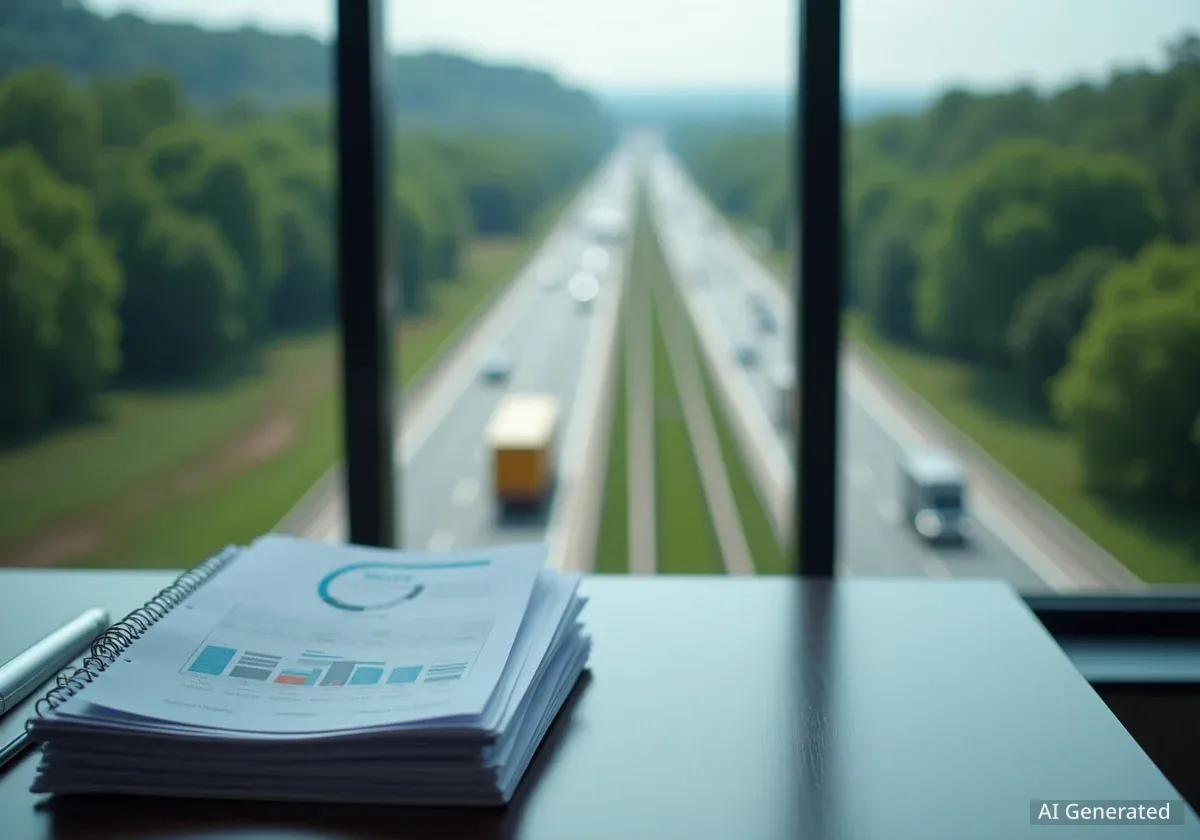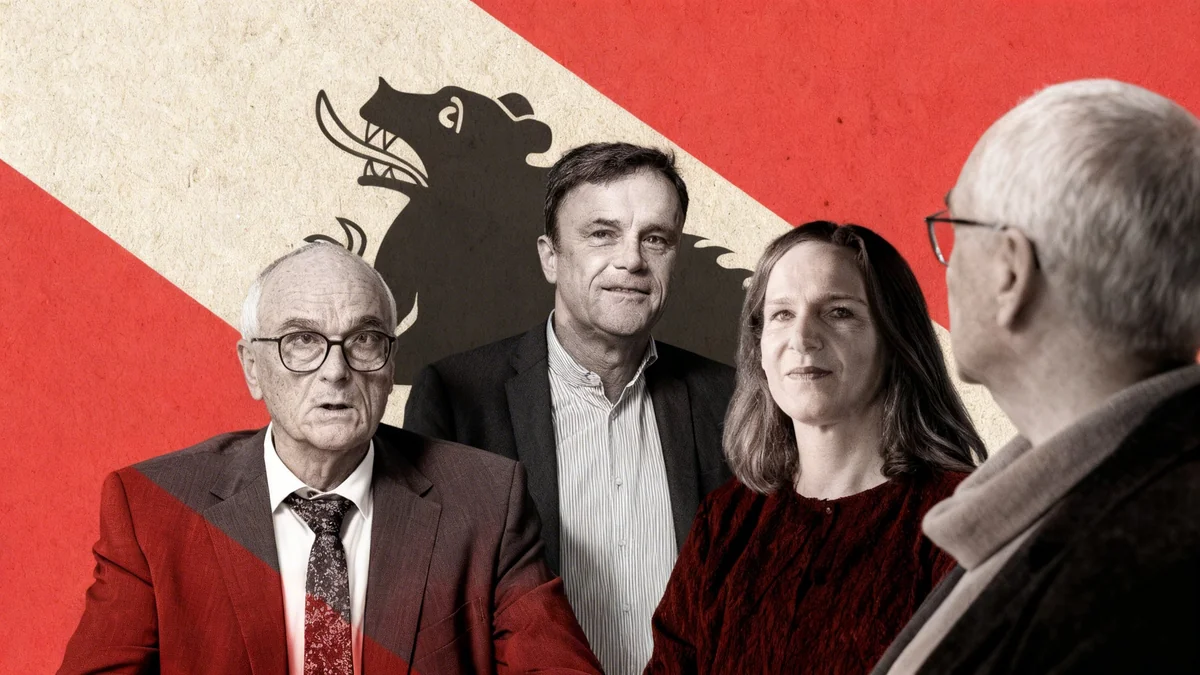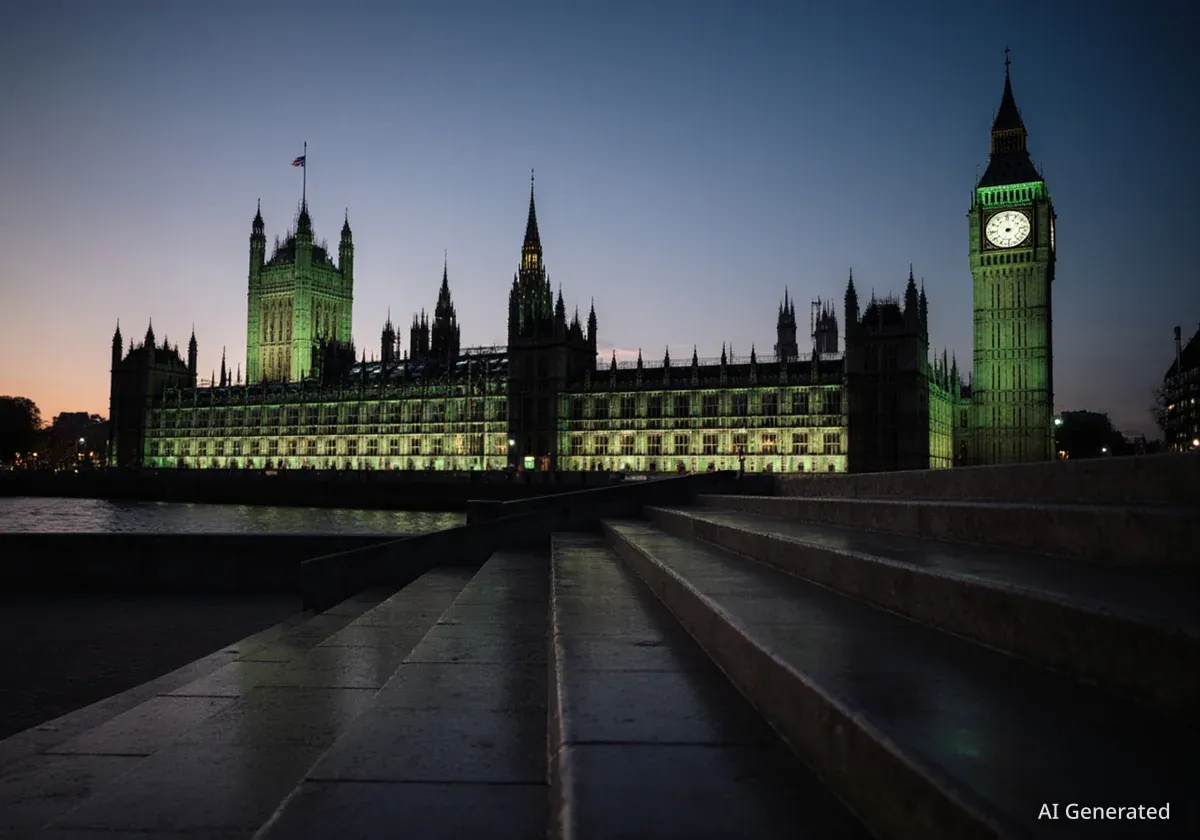An expert report from ETH Zurich has recommended proceeding with the controversial Grauholz motorway expansion, a project previously rejected by Swiss voters. The same report advises delaying the Bern East bypass, a key urban development project, sparking immediate criticism from Bern's city government and local organizations.
Key Takeaways
- An ETH Zurich study recommends prioritizing the Grauholz motorway expansion, despite a national referendum rejecting it in 2023.
- The report gives low priority to the Bern East bypass, a project aimed at urban renewal by tunneling a section of motorway.
- Bern's city council, led by Transport Director Matthias Aebischer, strongly opposes the recommendations and vows to fight for the bypass.
- Business and environmental groups have also criticized parts of the report, highlighting a deep division on regional transport policy.
ETH Report Reignites Motorway Debate
A comprehensive analysis of Bern's major transport projects, commissioned by Federal Councillor Albert Rösti and conducted by Professor Ulrich Weidmann of ETH Zurich, has put two key infrastructure plans on a collision course. The report suggests prioritizing the expansion of the Grauholz motorway section while simultaneously downgrading the Bern East bypass project.
This recommendation directly challenges the city of Bern's long-term urban planning and transport strategy. City officials have expressed significant concern over the report's findings, setting the stage for a political confrontation with the federal government.
Background of the Conflict
The debate centers on managing traffic congestion in the Bern region. The Grauholz section of the A1 motorway is a known bottleneck. The Bern East bypass is designed to address a different issue: the negative impact of the Ostring motorway, which cuts through a dense residential area, by moving it underground.
Bern's Transport Director, Matthias Aebischer of the Social Democratic Party, has stated the city will not accept the report's conclusions without a fight. He emphasized that the city government will continue to advocate for its vision of sustainable urban development.
Grauholz Expansion Recommended Despite Public Rejection
One of the most contentious points in the ETH report is the recommendation to proceed with expanding the Grauholz motorway. The plan involves widening the section between Wankdorf and Schönbühl from six to eight lanes. A further expansion from four to six lanes between Schönbühl and Kirchberg is also proposed through the conversion of the emergency lane.
This proposal is controversial because Swiss voters rejected a package of six motorway expansion projects, including Grauholz, in a national referendum in November 2023. The measure was defeated with 52% of the vote nationwide.
Local Opposition Was Strong
According to official results, opposition to the motorway expansion was even more pronounced within the city of Bern, where 75% of voters rejected the proposal. This strong local mandate is a key argument for city officials opposing the new recommendation.
Matthias Aebischer expressed his expectation that the Federal Council will respect the outcome of the referendum.
"I assume that the Federal Council will listen to the people," Aebischer stated, highlighting the clear democratic decision made less than a year ago.
However, Federal Councillor Albert Rösti defended the report's inclusion of the project. He argued that the referendum was on a package of six projects, not individually on Grauholz. He also noted that any move to restart the project would require a new parliamentary decision, which could itself be subject to another referendum.
Bern East Bypass De-Prioritized
The city government has expressed deep disappointment with the report's assessment of the Bern East bypass. The project, which involves constructing a new 3.3 billion Swiss franc tunnel to move the motorway underground between Schosshalde and Muri, was ranked fifth out of six priority levels. The report described it as "long-term low priority," questioning both its necessity and the proposed solution.
In an official statement, the Bern City Council said it "expressly regrets this result." The council argues that the report's evaluation, based primarily on traffic, strategic, and financial criteria, is outdated and fails to consider critical urban planning goals.
The bypass is viewed by the city not just as a traffic project but as a vital "urban repair" (Stadtreparatur) initiative. The goal is to reconnect neighborhoods currently divided by the open motorway trench and improve the quality of life for thousands of residents.
Broad Support for the Bypass
The city is not alone in its criticism. The "Fokusraum Bern Ost," a regional partnership including the city, the canton, and the municipalities of Muri and Ostermundigen, has also called for the federal government to correct the report's findings. They insist that spatial planning criteria must be included in the final decision-making process.
Interestingly, even business groups that support the Grauholz expansion have questioned the decision on the bypass. The cantonal Trade and Industry Association (HIV) called the de-prioritization of the Bern East bypass "incomprehensible," indicating a rare point of agreement between business interests and the city government.
Implications for the Wankdorf Junction
The report's recommendations have created uncertainty for another related project: the expansion of the Wankdorf motorway junction. The federal government has already approved the plans for this interchange, but the city of Bern has filed an appeal to secure urban design improvements.
Opponents of the Wankdorf expansion argue that the project was designed with the Bern East bypass in mind. With the bypass now in question, they claim the large-scale interchange is oversized and unjustified.
- Spurwechsel Bern: The association behind the successful "Stop the Wankdorf Traffic Monster" initiative is now demanding an "immediate stop" to the Wankdorf project's approval process.
- VCS Region Bern: The transport and environment association described the Wankdorf expansion without the bypass as an "isolated and oversized project that lacks any justification."
The city council is in a complex position, having accepted the initiative that legally obligates it to use all available means to oppose road projects that generate more traffic.
Next Steps and Political Outlook
The debate over Bern's transport future is far from over. Federal Councillor Rösti's department (Uvek) has announced it will issue a formal response to the ETH report in January. Before then, it will gather feedback from the affected regions, including the City and Canton of Bern.
This consultation period provides an opportunity for local authorities and stakeholders to formally present their objections. Matthias Aebischer has made the city's stance clear: "The city council will fight for the bypass." The coming months will determine whether the expert recommendations will guide federal policy or if local and democratic opposition will force a change of course.




